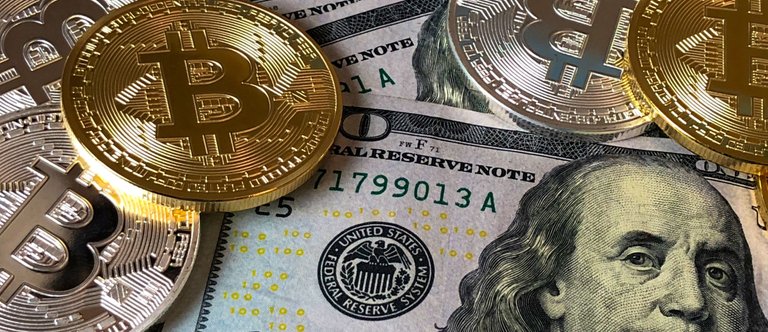
So banks in the US are now allowed to provide a wallet service for cryptocurrencies.
What do banks do? They extract fees.
Of course they do. They are businesses that provide services and thus need a revenue stream for the value they provide, I get it.
So it's natural to think that they will apply this model to crypto holdings. This is speculation on my part.
I think this is still OK though because even though the base layer cost to store crypto on say the Bitcoin blockchain is zero, the banks are going to be adding value on top of that by taking on the responsibility to store your keys.
Cash Under The Mattress
This takes us to a model that matches the one used for fiat currency.
- Hold the physical cash yourself, taking responsibility for storing and securing it
- Store your cash in a bank and give them responsibility for storing and securing it
Trust
In the UK and the USA at least, by law, when you deposit money in a bank, the bank becomes the owner of that money. You retain the right to request a withdrawal.
This is literally the case with crypto because of the "not your keys, not your crypto" principle.
And there is no point in both the customer and the bank holding copies of the keys because if the customers security is weak and the keys get stolen there is nothing the bank can do to prevent the funds being moved.
They could implement a 2 of 3 multi signature wallet I suppose but what's the point when the bank still retains 2 of the 3 keys?
Fractional Reserve Banking
One day the banks realised that most of the money that customers had on deposit never moved.
People would deposit and withdraw money regularly but overall perhaps 90% of the money remained in the bank.
This was seen as an opportunity to lend out the money that was unlikely to be withdrawn.
Those new loans became new debt and new money, leading to the actual amount of cash backing the currency supply to decrease to a lower and lower percentage.
Should everyone in the US or the UK today go to the bank and try and withdraw 100% of their deposits they would be refused for the simple fact that there isn't enough money on deposit to cover the account balances of all their customers.
Fractional Reserve Crypto
What makes us think this won't happen to crypto that is on deposit with banks?
There is already suspicion in crypto that the exchanges don't have enough crypto deposits to cover the balances of their user base.
This is what gave birth to the proof of keys initiative (see https://www.proofofkeys.com), although I very much doubt the masses will participate in this type of thing since they are using their bank as a crypto wallet to keep things as simple as possible.
At least if fractional reserve crypto happens there will still be the ability to buy and store some of the bearer asset, some of the real base money ourselves.
Your Thoughts?
What do you think to all this?
News source: https://www.coindesk.com/banks-in-us-can-now-offer-crypto-custody-services-regulator-says
More From Me
Create a free HIVE account, follow me and I'll tip you with crypto for your comments.
Click here to create your HIVE account now
Learn new skills at Cryptoversity, the world's first online school for Bitcoin, cryptocurrencies and blockchains.
Sage advice, be in control of most of your own money, because you seriously never know what could happen.
And if you do still want to risk your money with a centralized party, you may as well get some actual value from it, unlike in a bank, with the likes of Celsius for example.
I own a ledger nano s and a Leger nano x. I have no need for a bank to hold my crypto.
Might as well store it in the garbage can